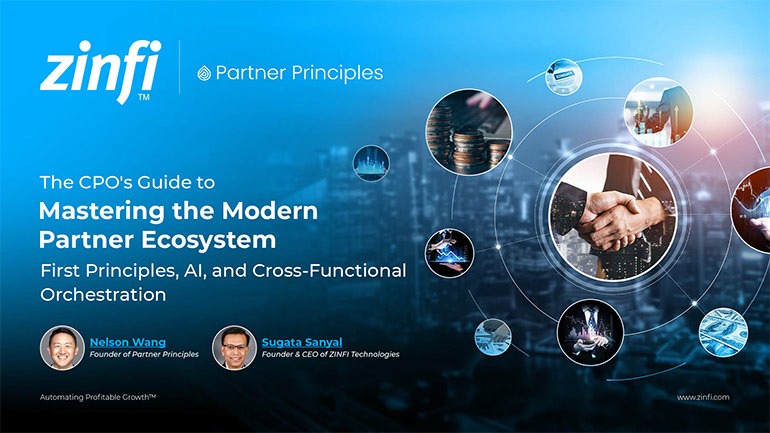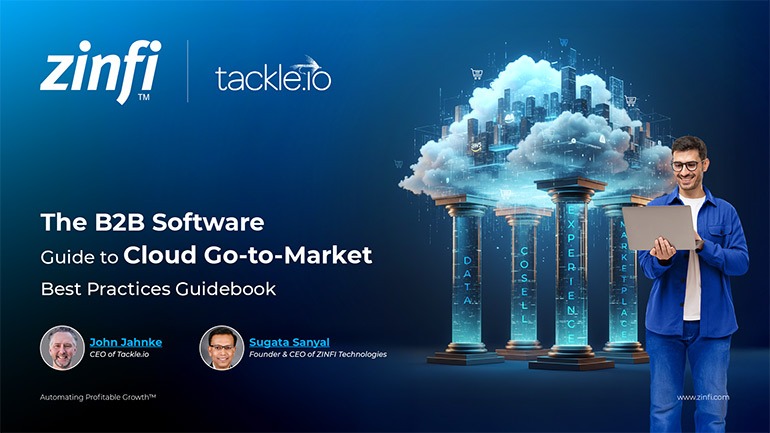Best Practices Articles

How Coronavirus Will Reshape the Coming Decade
As of today, the market is down 33% from its peak. The Fed is pumping money into the economy as if they were trying to irrigate the Sahara Desert, with no end in sight. People are rushing to stores and stockpiling toilet paper. That won’t save their lungs from the coronavirus, but social distancing will if the practice it. Financial analysts are talking about the “Japanification” of the entire developed world. Kids are at home, parents are trying to make a living and the treasury secretary is talking about one of five employees being unemployed by summer. It’s as bad as the Great Depression. We are now counting seconds to the end of the world – and then BOOM – it’s ALL OVER!!!
NOT TRUE!!!
Some good news is already emerging. China is seeing no new infections. South Korea, Singapore and Hong Kong have seen minor relapses with some new cases, but they are all tied to known sources of foreign infections. Yes, Italy is a mess, but they are taking strong measures to stop the coronavirus and the people are cooperating. The US, the UK, Germany and other countries are fumbling their way toward putting the right measures in place.
While there is no doubt that the some members of the younger generation are being reckless and not accepting their responsibility to maintain social distance, in general more people are being cautious and trying to be considerate. The media, as usual, doesn’t know how to moderate its response, so the messages veer wildly from “nothing really happened” to “the world is coming to an end.” There is no doubt this is a major crisis, and we must be cautious and practice social distancing until the curve flattens, but we should also take a step back and breathe for a moment.
We as global citizens have gone through wars, famines, pandemics and crashes, but survived. Yes, we have lost millions to those events and they have reshaped our lives and cultures, and unfortunately we will likely lose thousands to this horrible coronavirus, but the world is not coming to an end. Some of us may not be around to see what becomes of it, but that will be eventually the case anyway, right? So – let’s be very cautious, but not give up hope. Could we at least agree to that, while we get through this horrible next few months?
Let’s take a moment to look forward. In his book The Road Ahead, Bill Gates said (I am paraphrasing) that we overestimate the near future and underestimate the long-term future. That is exactly what is going on today from Wall Street to Main Street. Let’s take a 10-year view to look at some long-term macro trends and see how they will play out.
- Boomers are retiring rapidly. Independent of coronavirus, Boomers are retiring. Over the next decade, 10,000 Americans will retire The coronavirus has nothing to do with it, but this means that disposable spending will drop dramatically, more houses will come onto the market and auto purchases will drop, but demand for healthcare and pharmaceuticals will go up. This has nothing to do with the coronavirus.
- Xers will remain confused. Gen Xers are kind of an inbetween generation – neither here nor there. Most Xers will buy houses, carry a lot of debt and try to save money to send kids to colleges, but they will struggle to build a nest egg. Unlike the Boomers, who are spenders, the Xers will be anxious about lack of savings and will try to invest in 401(k)s or some other form of retirement savings, but due to two big crashes (2008 and 2020) they will be highly skeptical of the stock market and will be hesitant to risk their money there.
- Millennials will reshape the future. The Silent Generation faced the Great Depression and World War II. Nothing was predictable to that generation, and saving money was about keeping it under the mattress. Unfortunately, Millennials are also growing up with two major markers – the financial crash of 2008 and the coronavirus crash of 2020. This year is already being coined the Lost Year. Millennials will soon be the largest group with spending power, but their experience with these two crashes will reshape the market.
- Boomers withdraw. Boomers will pull out huge sums of money from equity and put them into low-risk investment instruments, so companies that offer dividends and a predictable future to investors will become a target rich environment. However, most will not have enough money to retire, and without a national healthcare system, they will very likely have to keep working at some level – because they have no other choice.
- Gen Xers make it volatile. Xers, not knowing how much to save and at the same time trying to replicate their parents’ lifestyle, will alternately upsize and downsize. It’s possible they will experience more stability in marriage than their parents, but they will also have more anxiety due to longer commutes and worries about helicoptering their kids and keeping up with the Joneses.
- Millennials double down for experiences. We will see home ownership, car purchases, aggressive investments and other forms of spending drop dramatically. Millennials will save money, invest in low-risk environments and spend discretionary income on experiences. They will trust no one except their small circle of friends. They will have huge mistrust of government and will rarely vote, but they will create noise in social media and virtual spaces.
So, what can you do? Well, I don’t know much about other industries, so I will focus narrowly on technology companies. If you are trying to build a business in the technology space, keep it real. The days of inflated price tags for products and services based on the promise of a brand are over. The next generation of buyers over the next decade will be mostly Millennials. They will test drive everything before they buy. They will look for value and, most importantly, they will seek a pristine experience.
With that in mind, if you are building a piece of hardware or software I suggest you abide by the following three principles:
- Experience is everything. If the customer doesn’t feel the product and service is centered around them, they will switch. They have no loyalty to anything you do or stand for, they don’t trust anyone, and they will be skeptical and always be open to change or something better.
- Price is value. Experience is the ticket to play, but to win you must place price front and center. The days of Cadillac or Lexus are over. Millennials don’t want to own anything. They don’t care about mega brands. The key measure of value will be return on experience (ROE).
- Honesty is integrity. Be transparent and candid. Accept your faults. Emerging generations are tired of leaders who overpromise (or even lie) and underdeliver. They want to see evidence and ownership. So, if you screw up, just own it. You are much more likely to win their hearts by honestly acknowledging mistakes than making a pretense of perfection.
When you started to read this article, it’s possible you were looking for a roadmap to help us get out of this crisis. To be honest, I have no idea what that looks like. I do know that we have a lot of smart people involved in this crisis at all levels, and despite the mistakes that have been made recently, they will eventually figure it out. I have complete faith in our ability to screw up big, but then also fix it. What I am certain of, however, is that the macro trends I outlined earlier will only accelerate in response to the major impact of this coronavirus.
From a macro perspective, it’s possible we are entering a slow-to-no-growth mode for a while. It’s very likely that the “Japanification” of market – where most developed countries have high-levels of debt and consumer spending remains tepid – will be a macro trend we will have to contend with. Due to technology-based progress, companies will likely invest less, in part because computational power will last longer than previous-generation technology, and also because demand will remain tepid. Do you really need a iPhone 12? In the same spirit, why should companies invest in technologies that don’t make a significant difference? They cannot trick a Millennial into buying a four-camera phone, especially when people are asking, “When is the next meal?” Photos are like used tissue paper – used once and thrown away. It’s all about the next experience; the gizmos won’t matter.
We will see a lot of reiteration of current concepts that are shaping our world view. There will be plenty of mistrust between states, but globalization will not stop. The pandemic will force the world to come together to build integrated health policies and systems. The World Health Organization (WHO), which is a glorified alert system, will get more power. The world will recognize that, just as we need strong financial institutions like the International Monetary Fund (IMF) and the World Bank, we need a WHO that has some muscle. Pandemic drills will become the routine, much like it was routine for kids growing up in the 60s to practice taking shelter in the basement.
I sincerely hope this crazy concept of consumption-driven growth, depleting resources around the globe so you can have one more lens on your phone camera, will slow down. It’s likely we will finally begin to seriously address climate change, as we come to the realization that how we live, what we eat, how we drive the bats away have huge implications. We will have to come to terms with the fact that four billion people will come online, travel on planes to go from one part of the world to other, and be potential carriers of germs and viruses. We will pause, breath and meditate, and let’s hope we will also be more considerate.
So we will change – dramatically – over the next 10 years. We will become better, smarter and wiser from this awful experience. Most importantly, we will become kinder and recognize we cannot live without the consideration of others. Honesty will take precedence over the false promises of brands, over consumerism and selfishness related to wealth and greed. We will learn how to share more, how to take care of each other, and we will become a better society in the end.
Those who we lose to this horrible coronavirus must know that their sacrifice will ultimately make this world a better place. The next decade will NOT be the lost decade, rather the decade of rebirth of resilience and kindness.
Best Practices Guides
 First Principles Drive Modern Partner Ecosystem Success Best Practices
First Principles Drive Modern Partner Ecosystem Success Best PracticesDownload for FREE
 The Future of Managed Service Providers: Navigating the Age of AI and Automation
The Future of Managed Service Providers: Navigating the Age of AI and AutomationDownload for FREE
 Modernizing Channel Marketing: AI and Ecosystem Enablement Best Practices
Modernizing Channel Marketing: AI and Ecosystem Enablement Best PracticesDownload for FREE
 The Channel’s Shift to Partner-Led With AI Best Practices
The Channel’s Shift to Partner-Led With AI Best PracticesDownload for FREE
 Hyperscalers, ISVs, and AI: Shaping the Future of B2B Software Distribution
Hyperscalers, ISVs, and AI: Shaping the Future of B2B Software DistributionDownload for FREE
 Definitive Guide to a Partner Ecosystem-First Sales Strategy
Definitive Guide to a Partner Ecosystem-First Sales StrategyDownload for FREE
 The Partner-Led Digital and AI Transformation Best Practices
The Partner-Led Digital and AI Transformation Best PracticesDownload for FREE
 Startup Talent Recruitment: Hiring Missionaries, Not Mercenaries
Startup Talent Recruitment: Hiring Missionaries, Not MercenariesDownload for FREE
 The Future of Partner Relationship Management with AI in Partnerships
The Future of Partner Relationship Management with AI in PartnershipsDownload for FREE
 Cybersecurity for the 99%: Strategies from the Frontline
Cybersecurity for the 99%: Strategies from the FrontlineDownload for FREE
 Mastering Partner Relationships: A Strategic Approach to Business Growth
Mastering Partner Relationships: A Strategic Approach to Business GrowthDownload for FREE
 Mastering Partner Relationship Management: Keys to SaaS Channel Success
Mastering Partner Relationship Management: Keys to SaaS Channel SuccessDownload for FREE